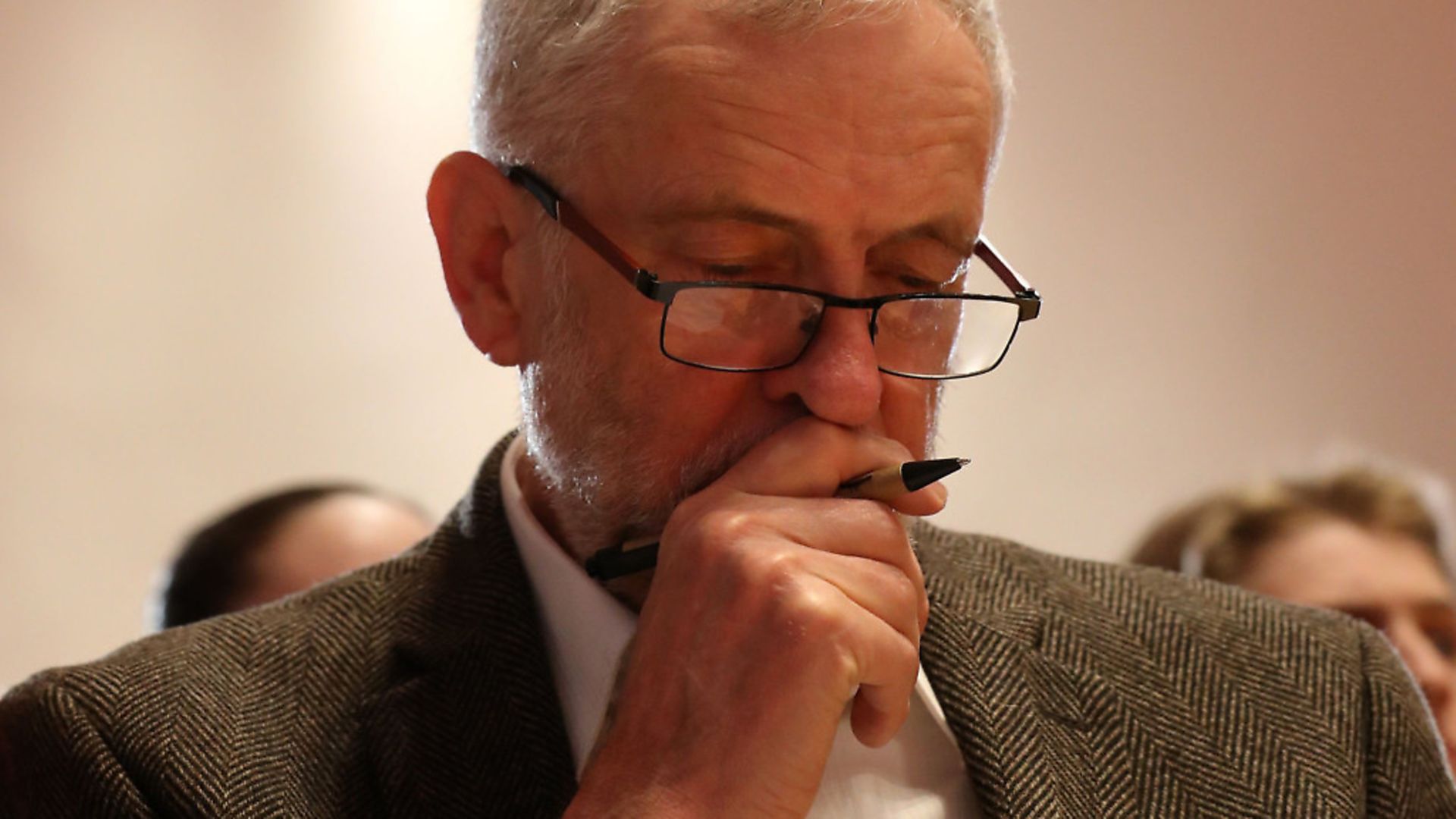
The Labour peer writes an open letter to the party’s leader urging him to seize on a moment of weakness from his opponent.
Dear Jeremy,
We are both avid rail enthusiasts, perhaps the strongest bond two men can forge at a distance, outside support for the England football team. My mission now is to form an equally strong bond with you in fighting Brexit.
I know some colleagues think that, on Brexit, the more silence the better from Labour. ‘Never interfere with your enemy while he is making a mistake,’ was Napoleon’s dictum. In the week of David Davis’s botched midnight coup, followed by Boris Johnson attacking Theresa May for trying to turn Britain into a colony of the EU, the Tories are giving a masterclass in disarray.
There are also arguments that any clear line from Labour simply divides our electoral coalition, and that gains in Brighton become losses in Basildon.
However, you cannot aspire to govern the country without engaging with it on the biggest issue of the decade. The denouement of this crisis will be parliamentary votes on May’s Brexit deal or no deal, within a matter of months, in which a Labour abstention would be tantamount to abdication.
Abstention, let alone support for a Tory Brexit, would also be a profound betrayal of Labour values and Labour voters. You accept this in your campaign for a ‘jobs-first Brexit’ and Keir Starmer’s ‘tests’ for the Brexit deal, which are first and foremost a deal which protects the economy and delivers the ‘exact same benefits’ as the European customs union and single market.
It is now starkly obvious that a ‘jobs- first Brexit’ is a contradiction in terms. Maybe, with a wise Labour government in the best of all possible worlds, this need not have been so. But since Brexit is a neo-Thatcherite project in origin and leadership, and May defined Brexit from the outset of her premiership as disengaging from the economic institutions of Europe, it was always going to end this way.
To try and wangle a deal with the EU, May is now making a half-in, half-out offer to Michel Barnier. But in the unlikely event that she secures even this, it will lead, in her words, to ‘less market access’ between Britain and the EU27. May herself no longer pretends that Britain will be better off with her Brexit, so it is bizarre that Labour is still suspending judgement.
And this is before one gets to European peace, freedom and solidarity, and the development of ‘social Europe’ since Jacques Delors, which explain why Labour members and trade unionists are so overwhelmingly against Brexit. As one Young Momentum activist said to me, ‘I don’t want to be shut up on a small island with Johnson, Farage and Jacob Rees-Mogg’.
Ultimately, therefore, we will be voting against May’s deal or no deal. And now that the Chequers fudge has demonstrated her position to be wrong and craven, we should start publicly mobilising against it now.
Our ideal outcome would be a general election returning a Labour government before Brexit can happen next March. Just possibly this might occur if May’s government collapses in the forthcoming Brussels negotiations and/or the subsequent parliamentary ratification. But the lowest common denominator is a powerful solvent for a Tory party which still puts power above all, so this is an unlikely outcome.
Far more likely, if we act consistently and skilfully, is a Commons majority, comprising all the opposition parties plus the 30 or so anti-Brexit Tories, for a People’s Vote on May’s deal, or no deal, with the alternative option being to stay in the EU. The big attraction of this to the Tory rebels is precisely that it does not require an immediate general election.
Part of being skilful is keeping your options open so that either an election or a People’s Vote are possible, yet one or the other – and the defeat of May’s deal or no deal – are seen as inevitable at the hands of a resolute Labour party leading a growing anti-Brexit coalition in parliament and the country.
Would we win a referendum? I believe we would do so convincingly, under your leadership. You have already humiliated May in one national campaign. In a People’s Vote next year, compared to the 2016 referendum, there would be nearly five million new voters, and a higher turnout than ever among the Corbyn-worshipping young. I can take you through the figures: they are as fascinating as the timetable on the newly-nationalised LNER line from London to Edinburgh.
Politics is never static. Victory in a People’s Vote would create a new, broad Corbyn-led coalition for the next general election, whenever it comes. It would also reinforce Tory divisions and perhaps even precipitate a split.
Oh and Napoleon. He ultimately lost at Waterloo, ending up on an island in the South Atlantic too far from South America even to take part in demonstrations.
Regards, Andrew









